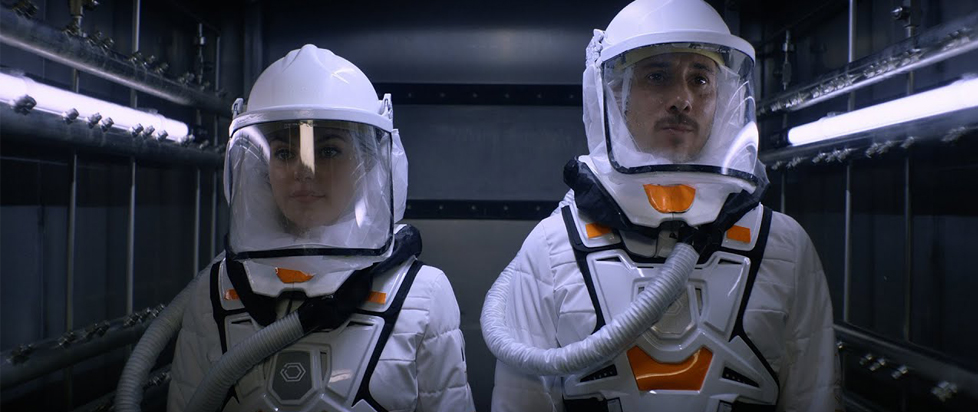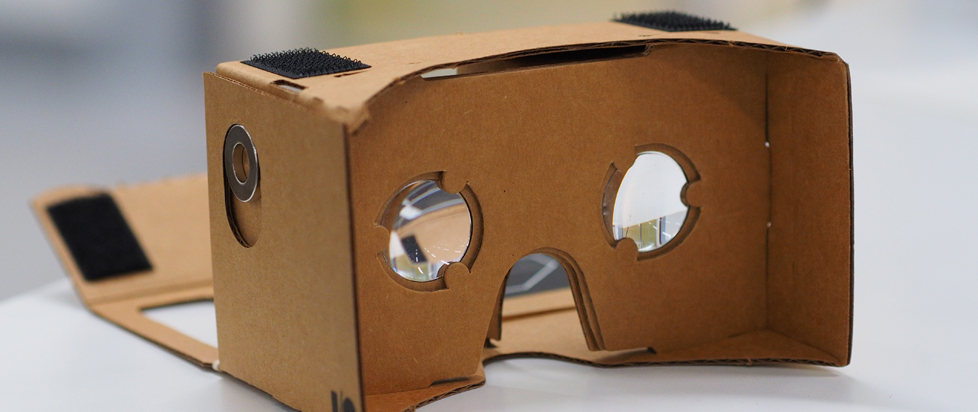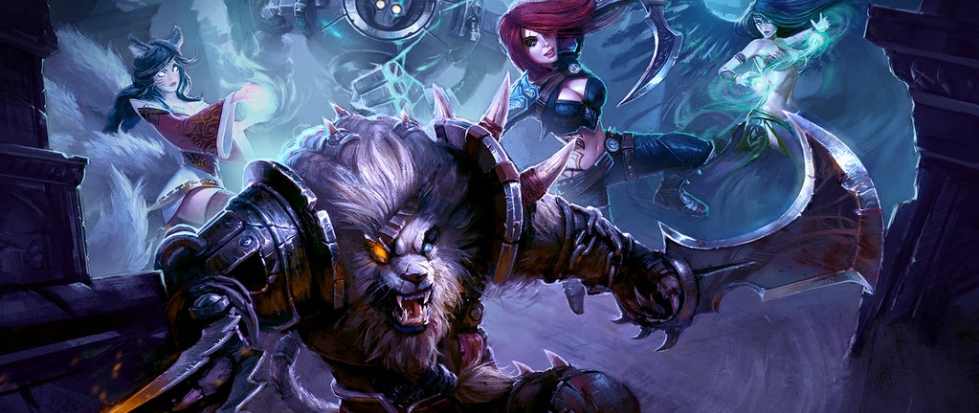
Paul Raschid on How to Make an FMV Game in the Time of COVID-19
It’s been a long and winding road for the FMV game. A fusion of interactive mechanics with live-action film sequences once hailed as revolutionary, FMV games such as Night Trap, Phantasmagoria and Double Switch enjoyed a brief burst of popularity in the 1990s before falling out of fashion. They remained relatively dormant until 2015, when new approaches to the genre such as Sam Barlow’s Her Story and Charlie Brooker’s Emmy-winning Netflix hit Black Mirror: Bandersnatch began to recapture the public’s attention. At the height of the FMV game’s second wind, however, COVID-19 reared its ugly head and complicated the film production process to the point that most projects simply stopped shooting. Although most videogame developers were able to continue production, albeit at a delayed pace, the unique filmed element of the FMV game left it at a relative standstill.
Few creatives in the field are as familiar with this tumult as Paul Raschid. A London-born writer and director who got his start writing, directing, and acting in independent horror movies, Raschid became interested in FMV games after directing developer Wales Interactive’s 2020 sci-fi thriller The Complex. Having since written and directed two more FMV games – 2020’s Five Dates, shot entirely during lockdown with iPhones, and upcoming 2021 project The Gallery – Raschid has collaborated with Wales Interactive on games filmed and programmed before, during, and in the twilight hour of the pandemic. As film professionals go, he has remained exceptionally prolific during an industry-wide crisis. “There’s a lot of hunger for people to work, a lot of passion,” he says of the UK entertainment industry’s current condition; Raschid’s full slate of pandemic-era projects counts him among the most passionate.

In February 2021, the British government okayed on-set shooting for film productions, provided that those productions adhere to a set of stringent safety conditions as prepared by the Production Guild of Great Britain and financed by the British Film Commission. Raschid, who had been working on the script for The Gallery over the last five years, hopped on the opportunity immediately. One of the major provisions for his and other productions was the continual presence of COVID supervisors, individuals trained extensively by the PGGB on “screening, testing, behavior change, medical pathways and scene-by-scene risk assessments” in order to monitor production environments for potential health crises.
The COVID team, as Raschid observed while filming The Gallery, went to great lengths “to be as invisible as possible, as seamlessly a part of the fabric of the crew as possible,” tending to their duties “like ninjas.” “They had a timetable of who needed to be tested and when they needed to be tested, and they did it with minimal disruption to the actual shooting process.” Any cast or crew member testing positive for COVID-19 is bound by BFC guidelines to self-isolate for ten days, a looming worry that could potentially bring disaster for the busy shooting schedule. Although the shoot went without interruption, for which Raschid thanks his “amazingly diligent and hardworking” crew and COVID team and their willingness to take safety precautions seriously, the experience was still a nerve-wracking one for him. “For me, personally, there was an added level of pressure that’s always there as a specter, that you could get shut down any day. It’s kind of like you’re walking a tightrope for six weeks, to make schedule and shoot things the way you want and get the coverage you want.”
The Gallery, which shot over the course of six weeks from February to March 2021, experienced logistical hurdles far beyond those of a typical film production. “Six weeks when you’re shooting an interactive film, where you have to shoot a lot more content, isn’t that long,” notes Raschid. Even with an efficient COVID crew, the shoot was unavoidably slowed by the need for frequent testing, temperature checking, and physical distance between crew members. Typically simple tasks such as setting up a video village, a communal on-set space for crew to review and work on footage, or taking a lunch break now required time to plan for and a degree of isolation that made communication within the crew more difficult. These impositions on an already frenetic schedule, and the logistical planning behind making space for COVID-19, necessitated that Raschid shoot almost entirely in one location. Finally, coordinating transportation and accommodations for cast and crew was an exhausting endeavor. Between the travel bans in place during shooting and Raschid’s additional efforts to make sure that no cast or crew used public transit on top of official guidelines, much of the talent that worked on The Gallery ended up being local to London.

Beyond the anticipated production issues and concurrent anxieties, there was a shift in tone on set that Raschid hadn’t expected. “The weirdest part about it is that you don’t see people’s faces!” he laughs. “You’re used to it being a communal experience… that social element is definitely not there. Everyone was traveling in their own bubble back home at the end of the day, so there was no socializing afterwards. There was a great camaraderie anyway, but it wasn’t the usual social and communal experience.” After “ten months of people having gotten used to lockdown,” though, Raschid thinks that “everyone was grateful for any kind of human interaction, whether it was distanced or behind the mask or not.”
Despite the restrictive schedule and the complications of filming during the pandemic, Raschid was able to get all the footage he needed to bring the long-gestating story of The Gallery to life. He even found opportunities to rewrite the script, a dual-timeline narrative that takes place both in 1981 and 2021, to address the pandemic and its accompanying year’s worth of societal lockdown. This willingness to improvise is nothing new for Raschid. His 2020 FMV game, Five Dates, deals with the challenges of video dating and finding love through the computer screen; Raschid also retooled this project before production to emphasize the COVID-19 element, further explore the related sense of isolation and maneuver around the technical difficulties present in having a locked-down cast and crew. Shooting remotely meant that the actors had to “light themselves, mic themselves, do their own DIT [work], upload the footage, and do their own prop stuff,” and aside from the few key props and costumes Raschid sent to the actors, the filming of Five Dates became a largely collaborative process. Working with actors over Zoom was a vastly different experience for Raschid after The Complex, but he soon found that this newfound distance actually complemented the project. “Interacting over Zoom had become something that everyone was used to. Part of the subject matter [of Five Dates] was the detachment – it was self-aware, in a sense. Any awkwardness or unconventionality with those actors having to build rapport over the screen was like gold, really.”

Though he enjoyed the filming of Five Dates, Raschid is ready for the UK’s vaccination rollout to restore a relative sense of normalcy to the production process. As of July 2021, 85% of individuals in England have received their first dose of the COVID-19 vaccine, 63% have received both doses, and Boris Johnson aims to lift restrictions on nonessential services within the month. In the meantime, Raschid is content working on editing The Gallery and “sitting back and seeing how the industry gets back up and running.” His hope is to begin shooting again in the back half of 2021 or at the start of next year. “It’s very much a fluid process, as it has been throughout the last twelve months,” he says, both eager to embark on his next project and wary in the way that the uncertainty of the past year has taught him to be.
Part of this hesitation is because financing remains a major concern, now more than ever, for the future of FMV games. Film projects shooting under COVID-19 safety guidelines now need to accommodate for what Raschid calls “a massive overhead” incurred by the on-set safety professionals, testing for cast and crew, and personal protective equipment. Shoots become longer, and thus more expensive, as a result of accommodating for these precautionary measures. Producer Jeff Petriello, currently working on Sam Barlow’s next interactive movie Immortality, estimates that his and similar projects have incurred a “10 to 15% increase in production costs to accommodate COVID-19 regulations.”

Raschid is “100 percent” certain that these new expenditures will cause complications for FMV games. “For independent projects in general, when the budget is already stretched… to have to find an extra 10, 15 percent… it’s a lot. It can be a real killer.” Because FMV games are largely made with “very low budgets in comparison to most other content you’re seeing out there,” Raschid reckons that these new costs will be prohibitive to smaller-scale projects “for however long we have to have these protocols in place… not just for FMV games, but for all sorts of independent projects.” Film industry economics may prove to be another curve in the FMV game’s long road, but thanks to Paul Raschid and the hungry London talent he brings to the genre, a future for it remains in sight.
———
Drew Byrd holds at least two media studies degrees and works primarily in public education. You can find him on Twitter at @tasogaremurmur.




